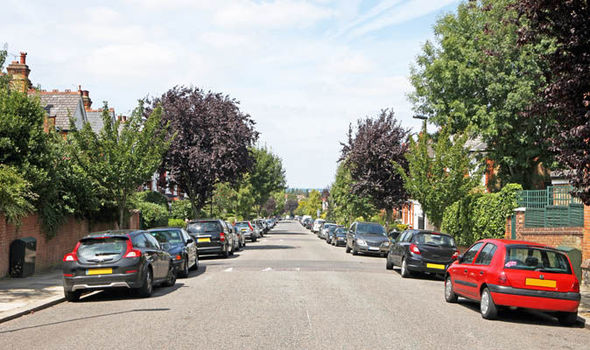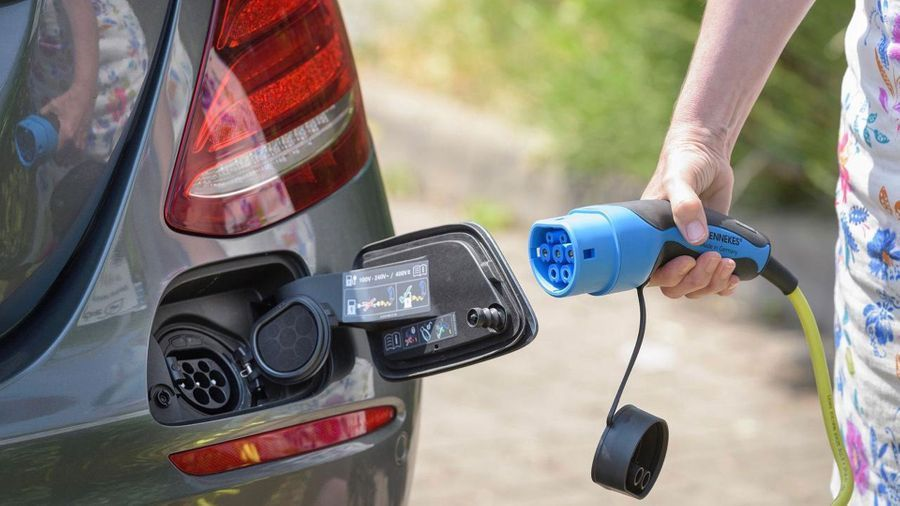BLOG: Storing your vehicle
If your car or van is going to be out of use during the coronavirus lockdown, here's what you need to do.
During the coronavirus lockdown, it's likely that your car will be sat for an extended period of time.
Unless you're a key worker, you should only be driving to shop for food and medicine, for medical appointments, to care for someone vulnerable, or to go to work if you cannot work from home.
Otherwise, you should leave your car at home until lockdown measures have been eased.
Do I still need to pay car tax while my vehicle is not in use?
Your vehicle will still need to be taxed if you're driving it or it's parked on a public road.
If you can park it off road on private land, you can declare the vehicle off the road by making a Statutory Off Road Notification (SORN). If you do this, you can't drive it — not even for a quick trip to the supermarket or pharmacy.
If you need to renew your tax during the coronavirus lockdown, you can do this online at www.gov.uk/vehicle-tax.
If your lender deals with taxing your vehicle for you, you don't need to worry as this will continue to be done automatically
Does my vehicle have to be insured if I'm not using it?
Yes, you still need to keep the vehicle insured while not in use. The Continuous Insurance Enforcement law says you have to keep the vehicle insured even if you're not driving it.
The terms and conditions of your finance agreement also require you to keep the vehicle insured under a fully comprehensive policy at all times.
If you need to renew your policy, you should be able to do this online or over the telephone.

Keeping your vehicle in good shape
If your car is set to be parked up for the next few weeks, we recommend you follow these tips:
Top up with fuel if possible
A full tank doesn't cause as much condensation, which can cause issues if left to build up. It also means you're ready to go if you do have to make essential travel.
You have to weigh up if this trip for fuel is essential. Ideally, co-ordinate a fuel trip with an essential journey such as shopping for food or other basic necessities.
Occasionally release your parking brake
Leaving your parking brake on for too long could cause your brakes to seize up, so we recommend you periodically release the brake and move your car a short distance, ideally while running the engine to charge the battery.
You can't leave the parking brake off unless you're parked on private land, and even then, you should ensure your wheels are secured to stop the vehicle rolling.
Keep the battery charged
How long a battery holds its charge depends on the age of the battery, how often you drive, and other factors like the climate. Things like the alarm system and onboard computers can drain the battery even when your car is parked, so it's worth keeping it topped up as much as possible.
- If you have a garage, consider a smart charger. This can be left plugged in and will draw current when required.
- Alternatively, you could consider buying a trickle charger to regularly top the battery up. You may need to leave it all day or overnight.
- If you don't have any of these options, for example because you park on the street, just start the engine once a week and run the vehicle for around 15 minutes. This will help recharge the battery properly and keep the engine in good condition, too.
Again, try to co-ordinate this with essential journeys to minimise your time out and help flatten the curve.
Whatever you do, don't leave the engine idling, and don't leave the engine running unattended.
Mind the diesel particulate filter (DPF)
A DPF has been fitted to all diesel cars since 2009 and is designed to stop soot leaking into the atmosphere to make the car more eco-friendly.
Soot caught in the filter is normally burned off when the filter regenerates. In ideal circumstances, a longer drive at a sustained speed is needed to do this.
What to do
To minimise the need for a 'forced regeneration' to clear the filter (or a costly replacement in the worst case), you should run the vehicle for a least 15 minutes while the filter regenerates. Avoid turning the engine off mid-way through a regeneration as this will cause it to stop and could create further issues.
There should be a change in the engine note, an increase in idling speed or a hot smell from the exhaust as the process starts. You may also notice the fans kick in.
When to do it
If it's possible to do this regularly and keep a healthy social distance, try to do so. Again, aim to co-ordinate this with essential travel.
You'll normally know if the filter needs a regeneration as there'll be a warning light on the dashboard. Other signs are that the car goes limp, performance is affected and/or the exhaust emits a strong smell.
Leaving your vehicle for an extended period
If you won't be using your car for the next two or three months, you should follow the above advice and also:
- Clean and polish the car to prevent any dirt drying on
- Make sure the car is dry to reduce the risk of rust or discolouration
- If you're storing it in a garage or confined space, make sure it's well ventilated
- You should also consider lubricating locks so they don't seize or jam shut
You may need to check you oil level and change it if possible. If you can't, you should change the oil when you take the vehicle out of storage.
Top tip: if you're leaving the car parked facing downhill, turn the wheels into the kerb so the pressure isn't all on the handbrake and leave the car in reverse gear.
Storing a petrol vehicle
After a length of time, a half-full or near empty tank will condensate and collect moisture. This can lead to corrosion of the tank and water in your fuel. The fuller a tank is when stored, the less space there is for water to condense.
If you have spare fuel, it should stay fresh in a sealed container for up to a year. If it's exposed to air, however, it can degrade within the space of a month.
Storing a diesel vehicle
Similar to petrol vehicles, diesel vehicles can collect moisture and face corrosion and water in the fuel. It can also lead to bacterial and fungal growth.
Stored diesel should be OK for up to a year, but this can depend on the type of diesel. Summer diesel, for example, is more likely to wax in cold weather.

Storing electric and hybrid cars
Electric and hybrid car batteries charge differently than the conventional 12-volt battery in petrol and diesel cars.
Generally, you should aim to keep an electric car's battery charged between 50% and 80% to prolong its lifespan. Try not to let the battery drop below 30% too often as this can affect long-term performance
We advise you to consult your owner's manual for best practice for your specific make and model.
Also be aware that, during lockdown, the installation of home chargers is currently limited to key workers.
Keeping your vehicle safe while it's not in use
Parking
Parking in a garage or on a driveway are more secure options, but if you don't have access to either, try to park as close to your house as possible — thieves are less likely to approach a car that can be easily seem. Ideally, park in view of a window so you can see the vehicle and would-be thieves know you can see.
If you're parking on the road, try turning your wheels towards the kerb to make an easy getaway trickier. If possible, park somewhere well lit.
Valuables
Take any valuables out of the car for as long as it's out of use, including anything stored in the glove compartment. Remove any charger cables or holders for mobile phones and, if you use a sat nav, clean the windscreen to get rid of the ring mark.
Avoid leaving car keys and documents anywhere obvious or visible, such as near a door or window.
Alarms and additional security
Most, if not all, modern vehicles are equipped with an alarm and immobiliser.
If you're nervous about leaving your car unattended for a length of time, look at additional security measures such as:
- steering wheel locks
- gearstick and handbrake locks
- additional electronic locking systems
- warning stickers
You could also install a tracker in your vehicle, or mark parts with an ultra-violet pen, which can help police find the car should it be stolen.

When you drive for the first time in a while
There's no set time span to keep an engine off. Provided your vehicle is properly maintained during that time, e.g. you warm the engine up and drive once every couple of weeks, it should be fine.
When you start driving for the first time in a while, here's what to do:
- First up, make sure your car tax, insurance and MOT are up to date. If you need an MOT, you've been granted a six-month extension due to the lockdown.
- Check tyre pressure. You can find the recommended figure in your manual or online.
- Check under the bonnet for signs of rust or damage, and make sure nothing's nesting there (also check pipes and hoses for signs of chewing).
- Check all fluid levels before you start the engine.
- Gently check your brakes (and handbrake) for corrosion. If the handbrake was left on, it may have seized up.
Put your car in gear and drive slowly, paying close attention to any strange noises or jolts.
If your car has been stood for a while, it may be worth booking a full service as and when garages are open and you're back on the road.